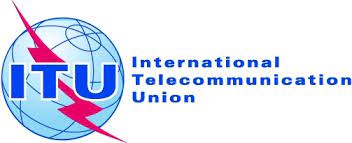The International Telecommunications Union (ITU) has advised the Nigerian government to streamline the Nigerian Communications Commission’s (NCC’s) and the National Information Technology Development Agency’s (NITDA’s) regulatory roles with a view to ensuring non-conflicting functions of the two agencies in the nation’s current drive towards a fully digitalized economy.
The ITU gave this charge in its recently launched report on Nigeria titled “Collaborative Regulation: Accelerating Nigeria’s Digital Transformation”.
The global telecom body identified some areas of overlapping functions of the two institutions as including their roles in the formulation of sector-specific ICT policies, data protection, and contents regulation, among others.
According to the report, with the rising rate of convergence in telecommunications, Information and Communications Technology (ICT), the need for a clear understanding of where the delineation of the roles of NITDA and NCC lies had become imperative.
Noting that there are also areas of overlapping roles of NCC, NITDA, and the National Office for Technology Acquisition and Promotion (NOTAP), among other agencies’, the ITU maintained that the NITDA Amendment Bill now before the National Assembly should clarify the regulatory institutions’ mandates.
The global body clarified: “The NITDA mandate in policy-making and regulation, i.e., whether it is a standards body, a regulatory authority, or a policy-making institution, is unclear, and stakeholders currently differ on what the role should be.
“While the Bill seeks to clarify the position of NITDA, it may inadvertently cause conflict between NITDA and other sector regulators including NCC given the NITDA broad mandate in relation to the ‘digital economy,’ and the lack of clarity in the distinction between the IT sector and the ICT sector”, it added.
The ITU cautioned that if the roles of the NCC and NITDA were not streamlined, it could lead to forum shopping as well as multiplicity of roles, licences and fees levied by public agencies, and payable by ICT sector companies.
It would be recalled that NITDA Amendment Bill had continued to trigger controversies as major stakeholders in the ICT industry, argued that passing it into law could give the NITDA overriding powers on other agencies’/commissions’ mandates in the industry.
For instance, the Computer Professionals Council of Nigeria (CPN), Nigeria Computer Society (NCS), Association of Licensed Telecommunications Operators of Nigeria (ALTON), as well as the Association of Telecommunications Companies of Nigeria (ATCON) among others, had last year vented their opposition to the provisions of the NITDA amendment Bill, noting that it is an attempt to transform the agency into a ‘super regulator’ in the ICT industry.






